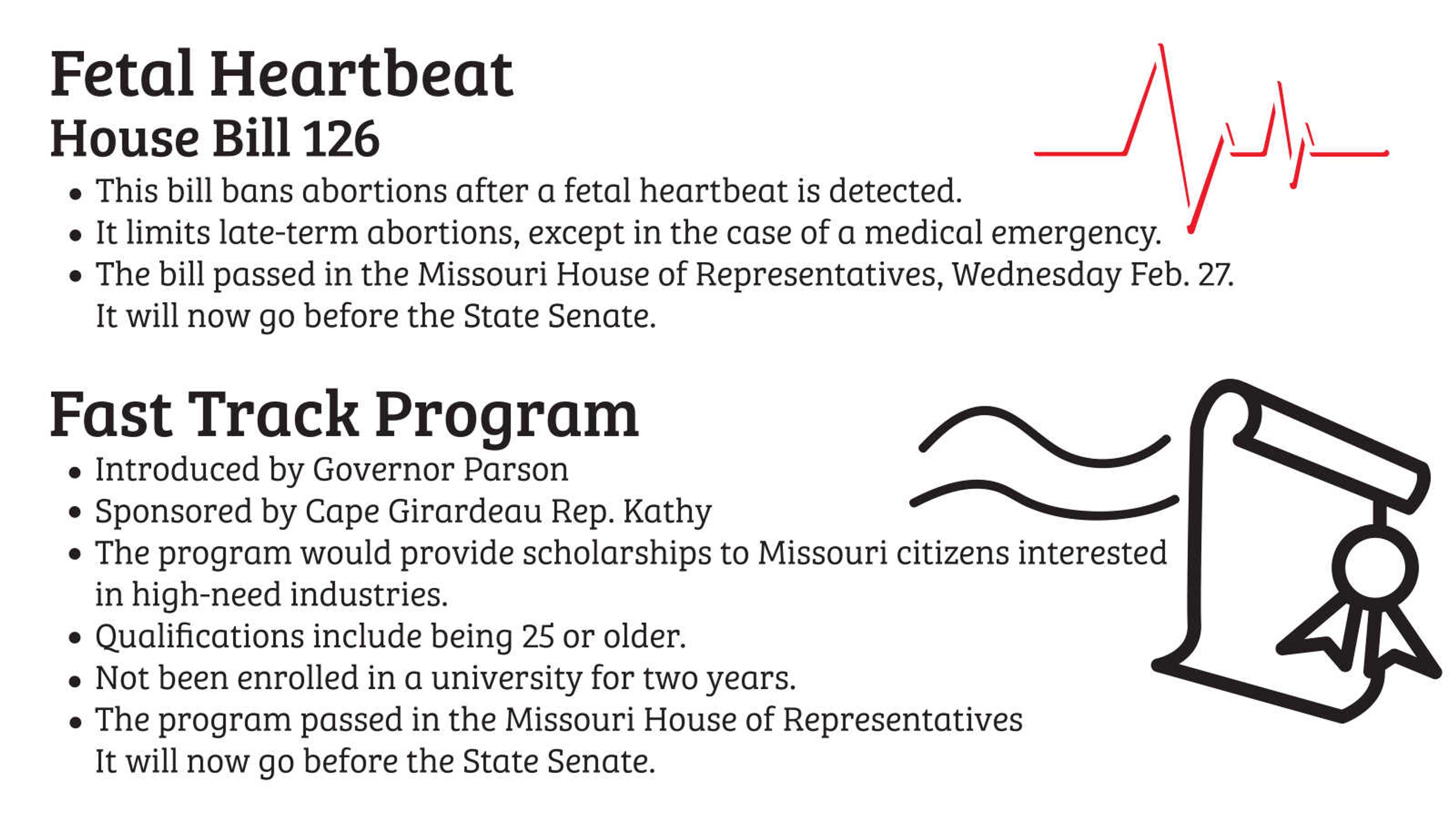Missouri’s House of Representatives has been active early in their current legislative session, advancing two noteworthy measures before March. House Bill (HB) 126, which would further restrict abortion in the state, garnered national attention along with other states who have recently altered their stance on the issue. Legislature for Governor Mike Parson’s Fast Track Program passed the next day after some alterations to the proposal. The program would allocate money to Missourians pursuing careers in high-need industries. Both must be approved by state Senate in order to advance.
__Fast Track Program__
On Feb. 28 the Missouri House of Representatives advanced the Fast Track Program to provide funds for prospective college students to pursue degrees in high need industries.
Proposed by Governor Mike Parson during his January State of the State address, the program would make scholarship money available to Missouri residents over the age of 25 who earn a gross income of less than $40,000 a year individually or $80,000 as a joint filer, have not been enrolled in classes for at least two years and have not already earned a degree, according to legislation sponsor Kathy Swan, R - Cape Girardeau.
Swan included nurses, elementary school teachers, truck drivers and administrative assistants in the list of careers that are likely to be included in a final draft of the bill’s definition of high-need industry.
She said when she began developing the bill to be presented to the House it was budgeted for $22 million, but was dropped to $18 million after clarifications.
“I think we're probably looking at the budget for a 17 billion plus line item for fast track,” Swan said.
Swan said the proposed legislation would apply to any institution, private, public or virtual that offers education in the careers deemed high-need by the bill’s language. Applicants would also be available for renewal of the program’s assistance for a total of four semesters or two years of the degree program and must maintain a 2.5 gpa.
The program is estimated to benefit some 16,000 Missourians, according to Swan.
__HB 126 — abortion policy__
Wednesday, Feb. 27, the Missouri House of Representatives voted 117-39 to pass House Bill 126, which would ban abortions once a fetal heartbeat is detected, except in case of medical emergencies. The bill is now headed to the Missouri Senate floor.
The bill was a priority for first-year House Speaker Republican Elijah Haahr, according to Rep. Holly Rehder R-Sikeston, who chairs the Children and Family Committee that brought the bill to the House floor.
The amount of passion on both sides of this issue, she said, was on full display during the debate leading up to the vote. Rehder hopes the bill will impact other states to make similar legislative steps.
“We have many pro-life majorities in houses and senates across the United States, and I think it’s incredibly important, what’s going on in these East Coast states, in New York and Virginia,” she said. “It’s incredibly important right now that we make these steps to say that it’s not going to happen in this state, we’re going to be proactive.”
Rep. Barry Hovis, R-Cape Girardeau, said, with this legislature, the state is looking to be a leader in protecting the rights of the unborn.
Southeast assistant professor of child and family studies Sarah Kuborn, said via email that the law has potential to impact the rights of women and families to decide when to become a parent.
“Most women do not know that they are pregnant within six weeks of conception,” Kuborn said. “If the procedure is only available within this time, many women's rights will be limited in the case of unwanted pregnancies.”
In addition, Kuborn said, as abortion is not generally covered by health insurance, the time limit puts an immediate and unexpected financial burden on the family.
“This bill would put significant financial strain on families who may not be able to afford a pregnancy or a child,” she said. “When women who seek abortion are denied, they are more likely to have financial hardship.”
The Bill will go before the Senate in the coming weeks for review.






